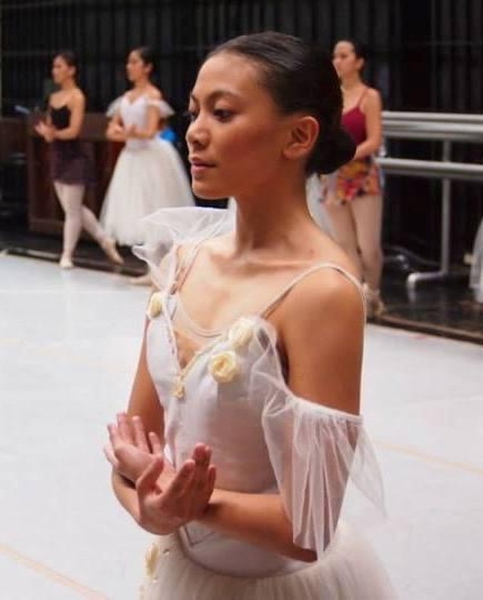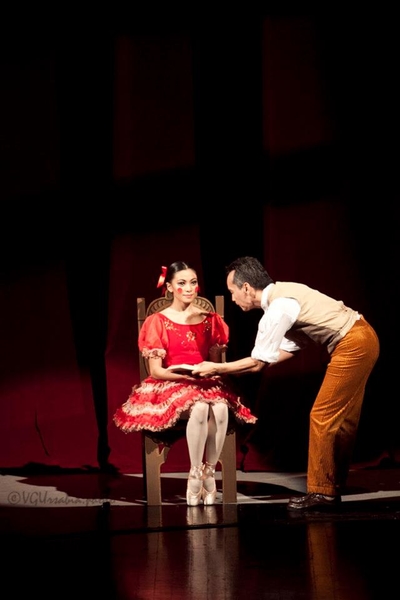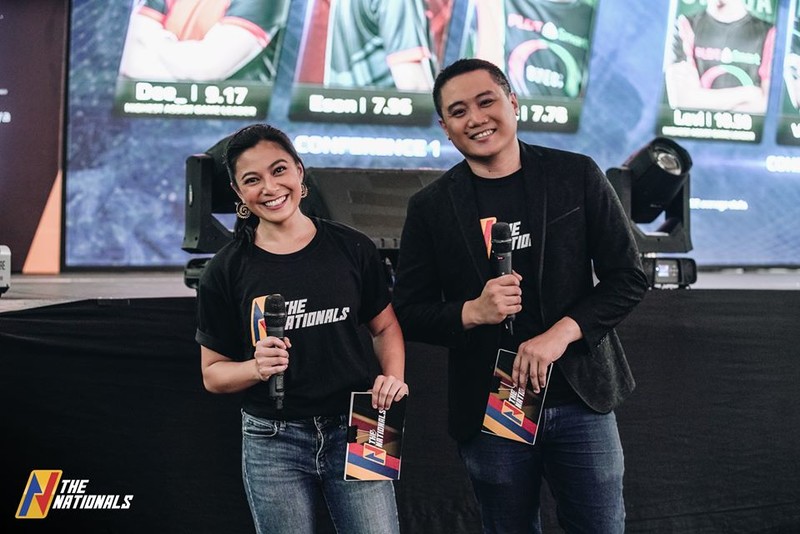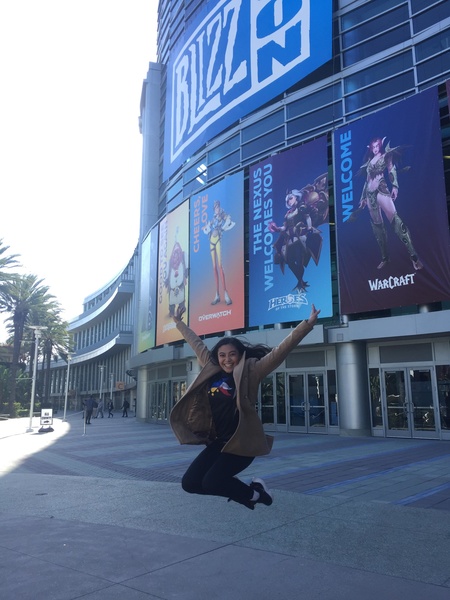How This Pinay Ballerina Started A Career In Esports
It's funny how life chooses to surprise us. We could be focused on *one* career path for years and suddenly, there's this whole other world we've yet to discover. For instance, one Pinay majored in Communication and even worked for a digital media agency before realizing that she wanted to become a behavioral therapist!
There's also Mika Fabella, a journalist who's making a name for herself in esports. But before she joined the industry, she had spent *years* training as a dancer—specifically, ballet. How cool is that?! Keep reading to know more about her story.
Can you tell us about your ballet background?
Mika: "I started dancing when I was 17, which is really late for a ballet dancer! I fell in love with it though and I was really motivated. I ended up joining the CCP Dance School and Ballet Philippines and spent seven years dancing with them. I would go to CCP around 10:00 or 11:00 am to help out with administrative duties and then dance or rehearse the rest of the day. I'd go home at 10:00 p.m. It was my whole life. I spent more time in the studio than I did at home."

"I've performed in all the major ballets as part of the corps de ballet: Don Quixote, Swan Lake, Sleeping Beauty, Les Sylphides, and The Nutcracker every December, just to name a few. I love classical ballet, but I was also more comfortable in modern and contemporary dance."
"My mom was actually a dancer as well, and my uncle, Tony Fabella, was a well-known choreographer during his time. He was part of the pioneering batch of Ballet Philippines. When I entered college, I knew I wanted to study Dance. I took up Dance at UP Diliman and graduated with honors. I was actually supposed to go back to the stage in 2020, as part of the ensemble of Repertory Philippines' Carousel. But well, we know what happened in 2020!"

"While I don't spend 12 hours a day dancing anymore, I do still dance from time to time. It's helped me easily adapt to other forms of movements that got my interest, like yoga, calisthenics, martial arts, and aerial arts. Today, I still add some ballet barre to my fitness routine."
How did you get into esports?
M: "It was a sequence of really fortunate events, I think! In 2019, I was getting into hosting events, although they were mostly corporate events and birthday parties. I was also streaming with Playbook Esports, but I was more of a casual gamer at the time. A friend mentioned that TV5 was looking for hosts for gaming and esports content and encouraged me to audition, so I did. I barely knew anything about esports at the time and the content in the script they had us read during the audition was so foreign to me! But I gave it a shot anyway. I didn't expect a callback because everyone else at the audition seemed so much more qualified than I did.
For some reason, I got a callback. From then on, I became a courtside reporter for The Nationals, then started hosting other esports tournaments and live events like the Esports and Gaming Summit. Then followed the Valorant Challengers Tour, the Wild Rift SEA Icon Series, and the Wild Rift Summer Super Cup, and it's been nonstop ever since."

What's a day in the life of an esports journalist like?
M: "There's a lot of watching of games. For the company I write for, I'm assigned to certain games I have knowledge in and player features. This means you have to be up to date with the latest happenings in the scene, from tournaments to roster shuffles, and maybe the latest meta or the newest character in a game. There's, of course, a lot of writing too, whether it's writing articles or writing scripts. I'll usually spend the whole day writing and formatting my articles, or in interviews, or researching for even more features. At night, I usually try to watch some tournaments and review important matches, especially with big esports teams, and prep articles to pitch for the next day."
The industry is as fast-paced as the games we play.
What are the challenges of being in esports?
M: "The industry is as fast-paced as the games we play. It's usually event after event, and the work never truly stops. You've got to be able to stay afloat and keep on top of everything, otherwise it falls apart."
What's something you wish more people knew about your profession?
M: "People assume that those who work in esports and gaming play games all day. That couldn't be farther from the truth! In fact, it's when I started working in esports that I barely had time to actually play games. And when I do get extra time to play, I don't like playing games that remind me of work. A lot of my colleagues feel the same way, too!
People assume that because I work in this industry and because I'm a woman, I'm a streamer or an 'e-girl'. I'm not. There are a lot more jobs in the esports industry other than being a streamer or pro player."

What can people expect to earn in your field?
M: "Another assumption about the industry is that people who work in esports make millions because of what we see on mainstream media or seeing the prize pools of major tournaments. But like any other job or career path, the people who make headlines are a very small percentage of an entire ecosystem. And like any other job or career path, how much you'll make depends on what job you'll be taking, how hard you work, what company you work for, and how you actually advance in the industry. I will say that I'm making enough out of writing and talking about games professionally! Enough to make rent, pay my bills, and live the kind of lifestyle I want."
What kind of growth do you see in this career path?
M: "This is difficult to answer. Esports is very young and the professionals that are currently working in the industry are actually part of a pioneering batch that is shaping the various esports career paths as we speak. There's currently no path to follow, because we're the ones actually constructing it. I will say that esports pushes me outside of my comfort zone every single day. I feel like I've definitely grown as a person and as a professional because of the opportunities that esports has given me."
Some people forget this because esports and gaming do start out as fun hobbies. But if you want to work in esports, you should be prepared to WORK.
Any advice for people who want to pursue this line of work?
M: "Don't forget that it's a job. It's work. Some people forget this because esports and gaming do start out as fun hobbies. But if you want to work in esports, you should be prepared to WORK. There's still a certain level of professionalism that you have to bring to the table, even if the table is in Mobile Legends or Valorant. There are reports to submit, there are deadlines, there's ungodly overtime, and there are standards to meet. But stick it out and if you love gaming, you'll be so happy waking up every day knowing you have one of the coolest jobs in the world. I know I am!"
MORE INSPIRING PINAYS:
This Taiwan-Based Pinay Made Her Dream Of Being An Astronomer Come True
How This Pinay Shifted Careers And Became A Behavioral Therapist
This Pinay Speech Pathologist Shares What It's Like To Help Kids With Communication Disorders
***
Cosmopolitan Philippines is now on Quento! Click here to download the app and enjoy more articles and videos from Cosmo and your favorite websites!
Follow Ysa on Instagram.
[ArticleReco:{"articles":["78205","78204","78059","77902"], "widget":"More from cosmo"}]
Source: Cosmo PH

Post a Comment
0 Comments